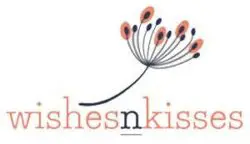When you are trying to make changes in your diet and lifestyle in order to make a positive difference, it is difficult to know where to start. There are so many different methods and approaches floating around that it is really hard to know what you can do to improve.
Something that is becoming increasingly popular is the use of adaptogens and functional herbs that are thought to be able to target certain issues and help to optimize your body’s response to stress. However, it is really important to be aware of what you are putting into your body and how it can be impacting you.

If this is something that you are thinking about trying, or that you have already been doing, then it might be worth taking a closer look at some of the ingredients that you are putting into your body. It is more than possible to be overdoing it or using the wrong things, which can end up causing more harm than good.
What Are Adaptogens?
Adaptogens are actually herbs, mushrooms, and other natural substances that are used to help the body to adapt to mental and physical stress. All of these herbs are thought to have different functions, and they supposedly work to help target specific issues, depending on which ones you are using.
Some of them are thought to be great for helping you to relax, and others are meant to be used for boosting your energy when you are tired.
Their purpose is to help the body to adapt, adjust, and recalibrate itself, depending on our emotional and physical surroundings. So, it is possible for them to calm you down in stressful situations, or quiet your struggling mind in the middle of the night. They are even thought to provide clarity in turmoil and give energy to those that are mentally or emotionally drained.
What You Need to Know About Adaptogens
Unfortunately, when you are using anything that is not widely researched and studied for specific purposes, there can be some surprises along the way. We are going to tell you everything you need to know about certain adaptogens, so you can be better informed when it comes to making these decisions.
Ashwagandha
Ashwagandha is something that can actually have an immunosuppressant effect, which means that people that have auto-immune diseases should be really careful when using it.
If you are someone that has a disease like rheumatoid arthritis, multiple sclerosis or lupus, you should avoid taking this at all costs, as improper use could lead to worsened symptoms. It can also counteract the effectiveness of your current treatment.
As well as this, Ashwagandha has been known to cause drowsiness, and it should not be used with any other sedative-type medications for this reason. It can also increase thyroid hormone production, which is why it should not be used with other thyroid hormone drugs.
Astragalus
Astragalus is usually fine to use for most people, but due to its immunomodulating properties, it could raise a sensitivity to auto-immune disorders. It has deep immune activation, which could cause counteractions if you are currently already taking immunosuppressant drugs.
The most common side effects of Astragalus are diarrhea, nausea and mild gastrointestinal effects. It is also possible for it to affect blood-sugar levels and blood pressure, making it a risky choice for anyone with blood-related health issues, like blood disorders, diabetes or hypertension. You also shouldn’t take it if you are currently on blood thinners.
Pine Pollen
Pine pollen is a powerful anti-viral and anti-inflammatory, and it is commonly used as a natural testosterone replacement therapy. While it can have many benefits, it can also present you with a variety of adverse side effects that you should be aware of. Of. If you were to take a higher dose than recommended, you could end up experiencing mood swings, aggressiveness, impulsivity, weight gain, hair growth, oily skin, or acne.
If you have a severe histamine response to pollen and other seasonal allergies, then you probably shouldn’t take pine pollen, as it could trigger an allergic response. You should avoid taking this if you experience any swelling, itching or facial inflammation.
Licorice
Licorice is something that you should refrain from using if you have a history of high blood pressure, and it has been known to increase blood pressure.
Shisandra
For those that don’t already know, shisandra is a five-flavored berry that has been used historically in Chinese medicine to promote a balance between yin and yang. It is thought that it is able to calm the heart and quiet the spirit by having a positive influence on the brain, kidneys, liver, and lungs.
It has been used safely and effectively for generations, but there have been very few human trials involving shisandra. The majority of the studies that have taken place have been based on animals.
The only potential side effects that were discovered were that it can affect the way in which other supplements or medications are absorbed into the body. So, you might want to avoid taking it if you are currently taking anything to treat existing conditions.
Some studies have also found that it can increase stomach acids, depending on your body type, and increase the possibility of peptic ulcers. While this is unlikely, it is still a possibility, especially if you have a history of gastritis or extreme acidity. In this instance, it is best to avoid taking it.
Fo-Ti (He Shou Wu)
This is something that has been used for more than two thousand years as a longevity herb in Asia, and the roots will be prepared through a traditional process and then dried and powdered for medicinal use. If you were to use this root raw or unprepared, then it can have a strong laxative effect. You need to be sure that you are purchasing a prepared root in order to avoid such a reaction.
Some of the potential side effects of this herb include digestive-tract reactions, and occasional light abdominal pain, nausea and vomiting.
